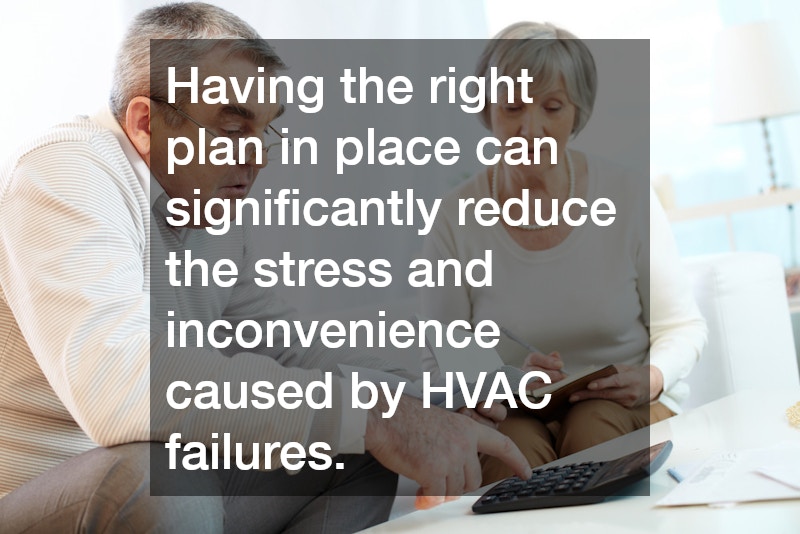An unexpected failure in your HVAC system can rapidly escalate into a pressing emergency, especially during extreme weather conditions. Knowing how to respond effectively in an emergency HVAC situation is crucial to minimizing discomfort and potential damage. This guide provides essential steps to handle HVAC emergencies efficiently, ensuring you remain cool in summer and warm in winter.
Recognizing the signs of an impending HVAC breakdown can help you address minor issues before they become serious problems. Foul odors, strange noises, and uneven temperatures are often indicators that your system is struggling.
By staying vigilant and prepared, you can safeguard your home or workplace against unnecessary interruptions.
How you respond in the moments immediately after an HVAC failure will determine how quickly it is resolved. With a well-structured plan, you can address the issue promptly, maintain a calm environment, and often avoid costly repairs. This article will equip you with the knowledge to handle such emergencies with confidence.
Immediate Actions to Take
The first step in any emergency HVAC situation is to assess the environment for any clear and present dangers. Check for electrical issues such as sparks or smoke around your HVAC unit. If these are present, evacuate the area and call emergency services without delay.
Next, try to identify whether the system has stopped completely or if it’s just not performing adequately, as these might have different solutions. Sometimes resetting the system is a straightforward first attempt at troubleshooting. Locate the circuit breaker and attempt a reset; this might solve the issue temporarily.
Should these initial steps fail to resolve the problem, it becomes essential to contact a professional HVAC technician. Having a trusted HVAC service company’s contact information handy allows you to act swiftly. Ensure that you select a service with emergency-hour capabilities to minimize downtime.
Preventive Measures to Avoid Future Emergencies
Preventive maintenance is a crucial strategy to avoid emergency HVAC scenarios. Adopting a regular maintenance schedule can ensure your system is running efficiently and can catch potential problems early. Replace air filters regularly and schedule annual professional inspections to keep your system in optimal condition.
Additionally, keeping the area around your HVAC unit clean and free from debris can prevent overheating and other mechanical issues. Debris can block air intake or exhaust, causing imbalances in your HVAC system. Regularly clearing leaves, dust, and other obstructions will promote airflow and system longevity.
Consider investing in a quality thermostat to better manage your heating and cooling needs. Smart thermostats can help monitor system performance and signal alerts before a complete breakdown occurs. Effective thermostat management conserves energy and reduces strain on the system, ultimately prolonging its life.
When to Call a Professional
Understanding when to escalate an HVAC issue to a professional can save time and protect your equipment. If simple troubleshooting does not resolve the problem within an hour or two, it is advisable to seek expert help. Professionals are equipped with the tools and expertise to diagnose and fix complex HVAC issues quickly.
In cases where there is a persistent or worsening problem, such as the system not cooling or heating effectively, immediate professional assessment is necessary. Attempting to fix significant issues on your own can lead to further damage, void warranties, and increase costs. HVAC technicians can provide timely solutions to avoid extended periods of discomfort.
Finally, if you’re unsure about the severity of the issue, it’s always safer to consult with a professional. Many companies offer consultation services that can be arranged quickly in an emergency. Putting your trust in qualified technicians ensures peace of mind and professional-grade solutions for your HVAC problems.
Preparing for an emergency HVAC situation involves understanding both immediate actions and long-term preventive strategies. Acting swiftly to address hazards, resetting units, and contacting professional help are key steps. Regular maintenance and professional consultations go a long way in preventing future emergencies.
Having the right plan in place can significantly reduce the stress and inconvenience caused by HVAC failures. By recognizing early warning signs and staying proactive, you can extend the life of your system and enhance its reliability. Remember, being informed and prepared is your best defense in any emergency HVAC scenario.
The importance of timely intervention and preventive care cannot be overstated in managing HVAC emergencies. Equip yourself with the knowledge outlined in this article, and maintain regular contact with professional services to ensure your system’s efficiency. Implementing these strategies will help you effectively navigate any emergency HVAC situation that arises.
.


